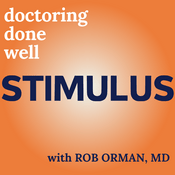Emergency medicine has an interruption-based workflow. There's no getting around some of that, but recurrent interruptions erode quality of care, accuracy of documentation, concentration, and ultimately the ability to leave work on time. While some interruptions are unavoidable, most are predictable and preventable. Reclaiming control over interruptions is more than a way to improve efficiency; it's about patient safety, reducing medical errors, and safeguarding your mental health. Constant task switching creates cognitive load, contributing to emergency physician burnout and compromising clinical decision-making.
In this episode, we explore tactical and mindset shifts that emergency clinicians can use to reduce interruptions, enhance documentation efficiency, and avoid the hidden costs of task switching. We'll cover practical strategies for managing EKG interruptions, skillful ways to manage nursing questions, and setting boundaries all while maintaining team dynamics and patient care quality. Whether you're an emergency physician, PA, NP, or resident, these evidence-based strategies will help you work smarter, reduce stress, and reclaim control of your clinical day.
Finishing emergency department shifts with a stack of charts to complete gets old fast. This chart debt also contributes to burnout.
We will help you break bad habits and equip you with the skills to walk out the door unencumbered.
Out-On-Time is a course for emergency physicians and clinicians that teaches shift efficiency and real-time documentation, enabling you to write fast, focused charts that bill well and are medicolegally sound.
Learn More About The Out-On-Time Course
We Discuss:
The Cost of Interruptions in Emergency Medicine
Not All Interruptions Are Urgent
The Cognitive Cost of Task Switching
Becoming a Non-Interruptible Clinician
Deferring Without Alienating Your Team
Protecting Focus at the End of the Shift
Fixing the EKG Interruption Problem
Asynchronous Communication That Actually Works



